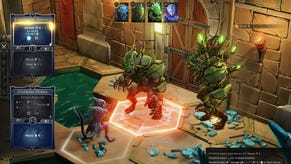Michael Condrey: "I certainly wouldn't characterise the community as toxic or misogynistic"
CoD: AW director has "low tolerance" for exceptions
Michael Condrey, the director of Call of Duty: Advanced Warfare, has challenged the idea that the gaming community is characterised by offensiveness and abuse, saying that he's experienced little to none of that attitude in his time in the industry.
"I certainly wouldn't characterise the community of fans I know and had the pleasure to engage with as toxic or misogynistic," he told the BBC.
"The community as a whole is very healthy, engaged and thoughtful and probably like anything anywhere well outside of gaming. In the fringes of a lot of areas of society there are examples of people behaving poorly."
Condrey also had some advice for CoD players, reiterating that there are procedures in place for reporting players who don't stick to the rules.
"Come to the game to have fun, come to be social, come to enjoy and build a community and have a positive energy," he said. "Toxic behaviours, abusive language, inappropriate emblems, I don't want that around. So for our community, Sledgehammer Games and Advanced Warfare we have pretty low tolerance for toxic behaviour."
Condrey's comments are a stark contrast to the thoughts of some, who have attributed the abuse and threats received by a number of developers, players and journalists in recent weeks to a poisonous culture which they believe has co-opted gaming and/or its media.
Advanced Warfare is out tomorrow: Tuesday November 4th. Whilst some analysts are predicting lower sales this year than previously, based on pre-order numbers, the game has reviewed well as the embargo lifted today. Expect a full round up of scores and opinions in a Critical Consensus on GI later today.









